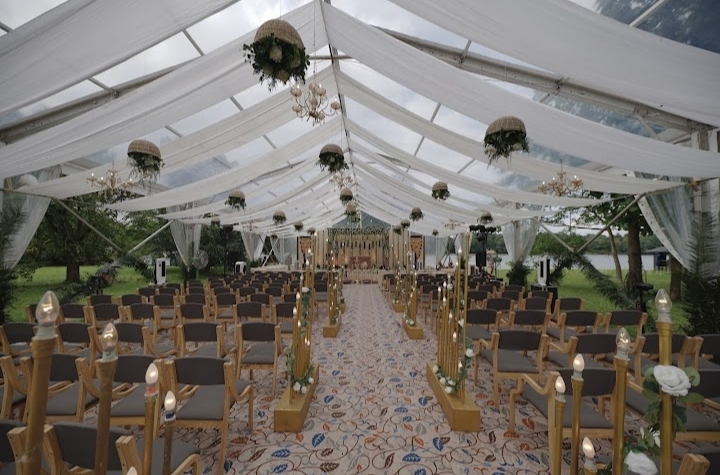Party Minds
Puthiyara - Kozhikode
Products & Services:
Party Minds, Puthiyara, Kozhikode, Reviews, Contact number, Phone number, Address, Map, Event Manage More..
Since : 1997
Puthiyara - Kozhikode
Products & Services:
Party Minds, Puthiyara, Kozhikode, Reviews, Contact number, Phone number, Address, Map, Event Manage More..
Since : 1997
Exhibition Organizers are professionals or companies that specialize in planning, coordinating, and executing exhibitions—ranging from business expos and art shows to trade fairs and product launches. These organizers manage everything from stall setup, vendor coordination, logistics, and promotions to guest management and audiovisual support.
In Kozhikode, a growing hub for commerce, industry, and cultural exchange, the demand for experienced exhibition organizers has surged. Whether it's a business expo, educational fair, or local craft exhibition, Kozhikode is witnessing a rise in events that need structured and creative execution. Exhibition organizers in Kozhikode cater to both large-scale corporate events and smaller niche exhibitions, offering end-to-end services tailored to the client’s vision.
1. Party Minds
S K Pottekkatt Road, Opposite All Fine Apartment,
Puthiyara, Kozhikode, 673016
2. Nila Catering Service India Pvt Ltd
Mathewchans Building, Sasthrinagar Road,
House Fed Complex, Eranhipalam, Kozhikode, 673006
3. RK Kerala Catering Group
Kannadikkal Road, Near Kulangara Bus Stop,
Thadambattuthazham, Kozhikode, 673010
4. Olive Events & Caters
Akshaya Appartment, Karaparamba Road,
Near Meitra Hospital, Karuvisserry, Kozhikode, 673001
5. Artera Events
Kallaripadi, Near Durga Bhagavati Temple,
Iringal, Kozhikode, 673521
6. Trendy Decors
Pallikkal Building, Kaloor Road,
Near Azhchavattam School, Mankavu, Kozhikode, 673007
7. Green Avocado
Koythanath, Mayanad,
Mayanad A.U.P School, Kozhikode Medical College,
Kozhikode, 673008
8. Colash Event & Wedding Management
Agricultural Development Bank Building, Puthiyara Road,
Near Stadium Junction, Puthiyara, Kozhikode, 673004
9. Pluspoint Events
2nd Floor, Elite Arcade, Chakkarothkulam,
Near Federal Bank, Nadakkavu, Kozhikode, 673011
10. Mangalsutra Wedding Planners
Vengalath Arcade, Wayanad Road,
Opp. Ayur Jeevanam, Eranjipalam, Kozhikode, 673006
Fairs and exhibitions are essential platforms for businesses, artists, and communities to showcase their products, ideas, and services. These events serve as a hub for networking, knowledge sharing, and business growth, offering participants the opportunity to meet potential clients, partners, and industry professionals. Below is a detailed guide with relevant subheadings, along with frequently asked questions and their answers.
Purpose: Focused on industry professionals, trade fairs showcase products, services, and innovations. They often serve as platforms for networking, business deals, and launching new products.
Purpose: Open to the general public, consumer fairs allow businesses to sell goods and services directly to consumers. These fairs often focus on specific products or themes.
Purpose: Job fairs bring together employers and job seekers. Companies exhibit their job openings, while candidates get a chance to network and interview on the spot.
Purpose: Art exhibitions display artwork, sculptures, and other creative works from artists or art galleries. They may be for selling or simply appreciating art.
Purpose: These exhibitions highlight the latest technological advancements, products, and innovations in industries like IT, electronics, and AI.
Purpose: Celebrating cultural heritage, traditions, and artistic expressions, these fairs showcase food, clothing, performances, and crafts from different cultures.
Purpose: Focusing on farming, livestock, and rural life, agricultural fairs display livestock competitions, farming equipment, and other aspects of rural agriculture.
Purpose: These exhibitions focus on the culinary world, offering tasting sessions, showcasing food products, and promoting the food and beverage industry.
Purpose: Fashion exhibitions highlight the latest trends, collections, and innovations from fashion designers and brands. Some are open to industry insiders, while others welcome the general public.
Purpose: These fairs provide a platform for wedding vendors, including decorators, caterers, photographers, and bridal fashion designers to showcase their services to couples planning weddings.
Purpose: Book fairs bring together publishers, authors, and readers, offering new book releases, book signings, and literary discussions.
Purpose: These fairs exhibit handmade crafts, art, and DIY projects. They are popular among artisans and small business owners to sell handmade goods.
Purpose: Educational fairs focus on schools, colleges, and educational programs. They are often organized for students and parents looking for academic opportunities.
Purpose: These expos highlight healthcare services, wellness products, fitness equipment, and holistic health practices.
Purpose: Focused on cars, motorcycles, and other vehicles, automobile exhibitions showcase new models, vintage cars, and the latest technologies in the automotive industry.
Fairs and exhibitions offer multiple benefits for both exhibitors and attendees:
1. Define the Purpose and Goals
A: A trade fair is an event where businesses within a
particular industry showcase their products or services primarily for
business-to-business (B2B) purposes. Exhibitions, on the other hand, can include
a broader range of events, from art and cultural displays to consumer expos,
and can be open to the general public.
A: To choose the right event, first, identify your goals.
Are you aiming to generate leads, increase brand awareness, or introduce a new
product? Then, research fairs that align with your industry and target
audience. It’s essential to assess the event’s past success, attendee demographics,
and relevance to your business.
A: Costs can vary significantly depending on the size,
location, and type of event. Expenses may include registration fees, booth
rental, promotional materials, travel, and accommodation. Trade shows often
have higher participation fees, while local craft or community fairs tend to be
more affordable.
A: Exhibitions offer businesses a unique platform for
direct interaction with potential clients, partners, and industry
professionals. Key benefits include increased brand exposure, lead generation,
market research, networking opportunities, and real-time feedback on products
or services.
A: To make your booth stand out, focus on eye-catching
design, such as bright banners, engaging visuals, and an open layout. Offering
product demonstrations or interactive elements will attract visitors.
Promotional giveaways, contests, or samples can also draw attention to your
booth.
A: You can measure success by tracking various metrics such
as the number of leads generated, sales made, brand exposure (e.g., social
media engagement or press coverage), and follow-up meetings scheduled. Many
exhibitors also conduct surveys to gauge attendee satisfaction and feedback.
A: Essential items for your exhibition kit include
promotional materials (brochures, flyers, business cards), product samples,
banners and signage, branded merchandise, a laptop or tablet for presentations,
and plenty of pens and notepads. Additionally, prepare logistics materials like
a list of contacts, event agenda, and staff instructions.
A: Virtual exhibitions are online events where exhibitors
display their products or services in a digital format. Visitors can browse
virtual booths, attend webinars, or interact with exhibitors via chat or video
conferencing. They offer the convenience of attending from anywhere, saving on
travel costs while reaching a global audience.
A: Absolutely! While large exhibitions can be more
expensive, small businesses can still benefit by participating in shared or
smaller booths. Collaborating with other businesses or using sponsorship
opportunities can also provide exposure without the need for a large budget.
A: Post-exhibition follow-up is crucial. Contact the leads
and potential clients you met during the event, either via email or phone, to
nurture relationships. Send thank-you messages to those who visited your booth,
and offer additional information or special offers. Analyze the event’s
performance and gather feedback to improve for future exhibitions.

Ernakulam, Puthiyara

Ernakulam, Puthiyara
Latest Customer Reviews
"Best Event Management Companie in Calicut 🤝"